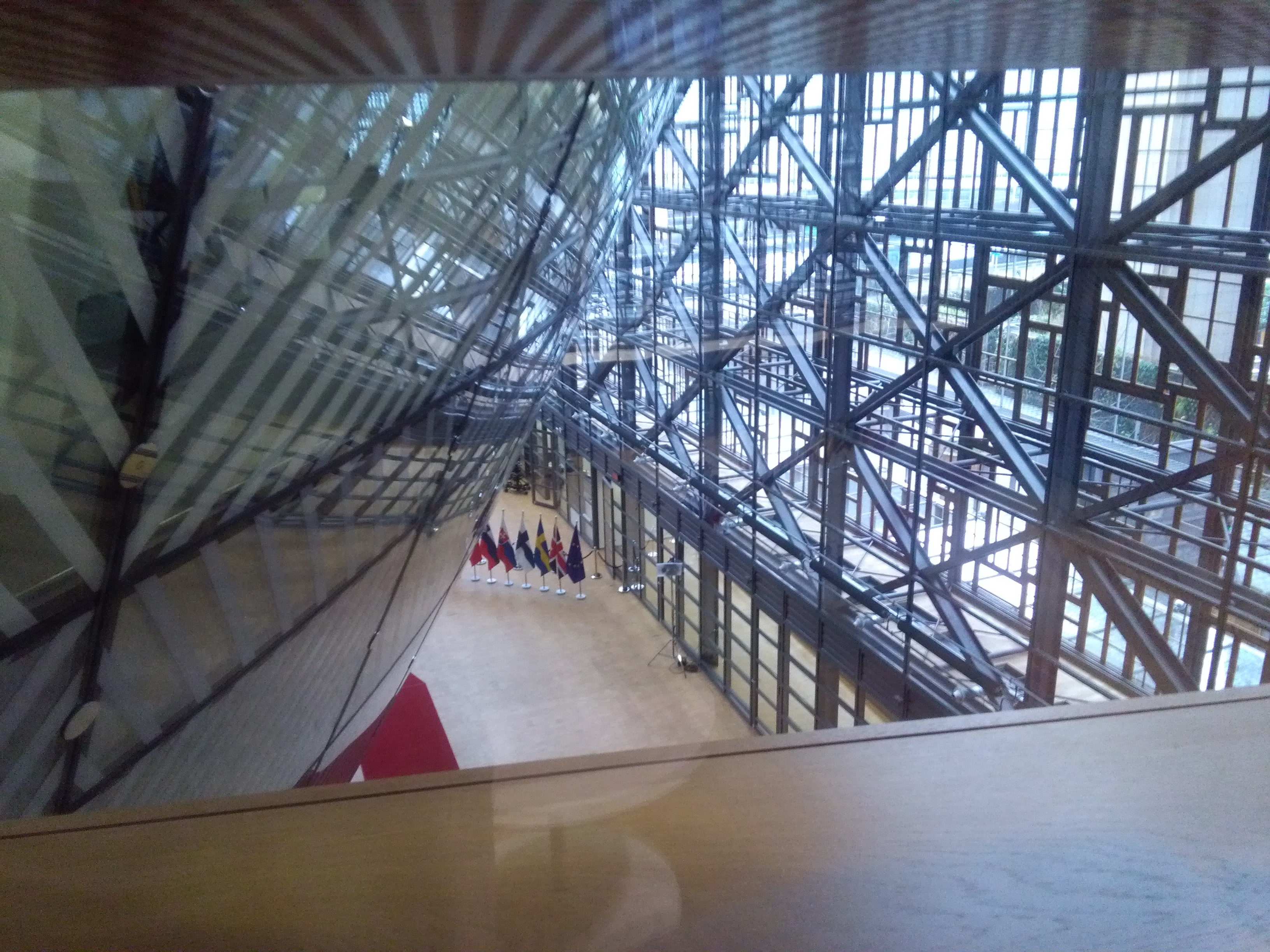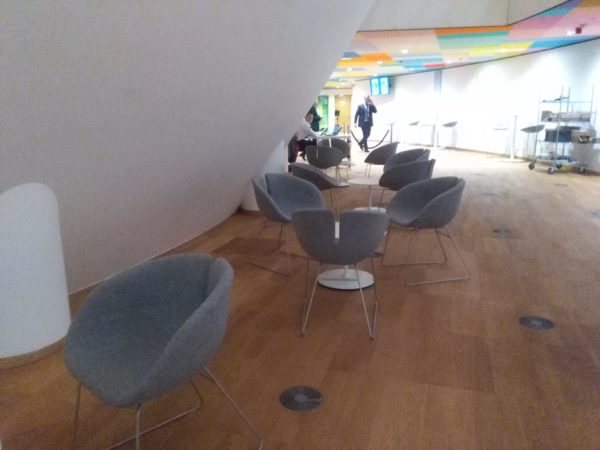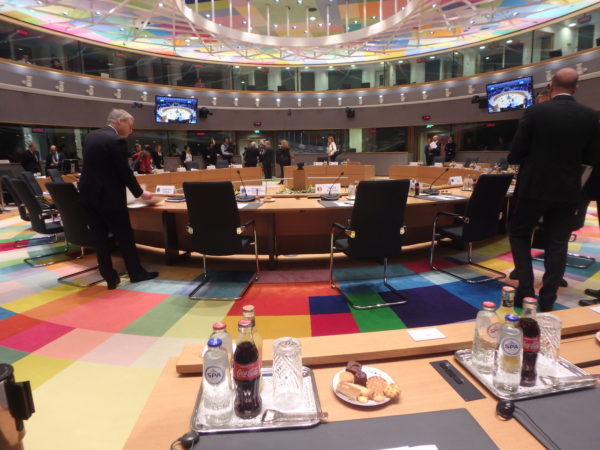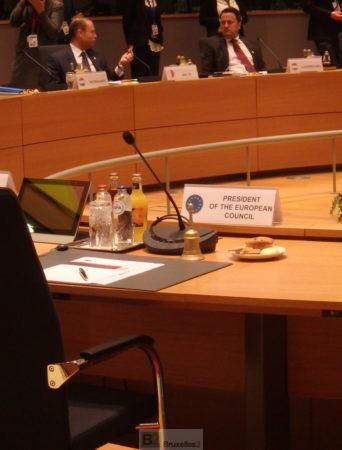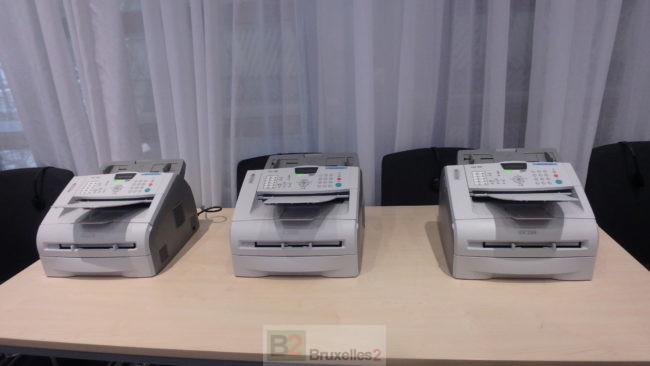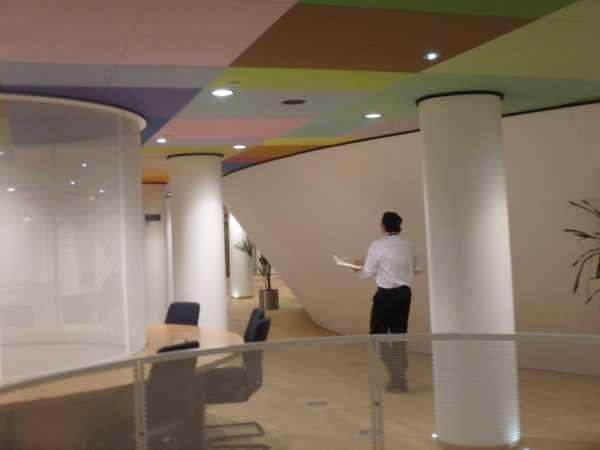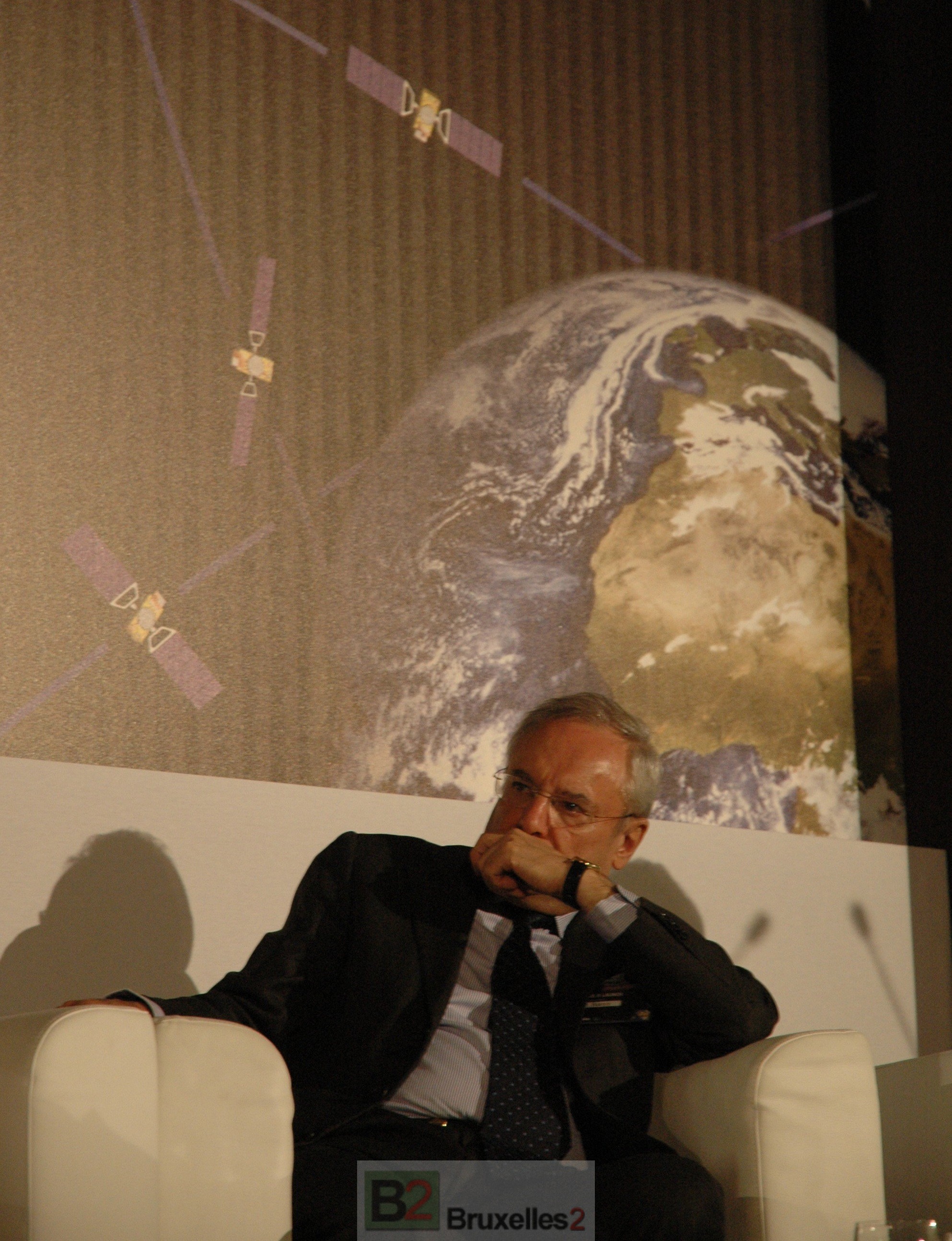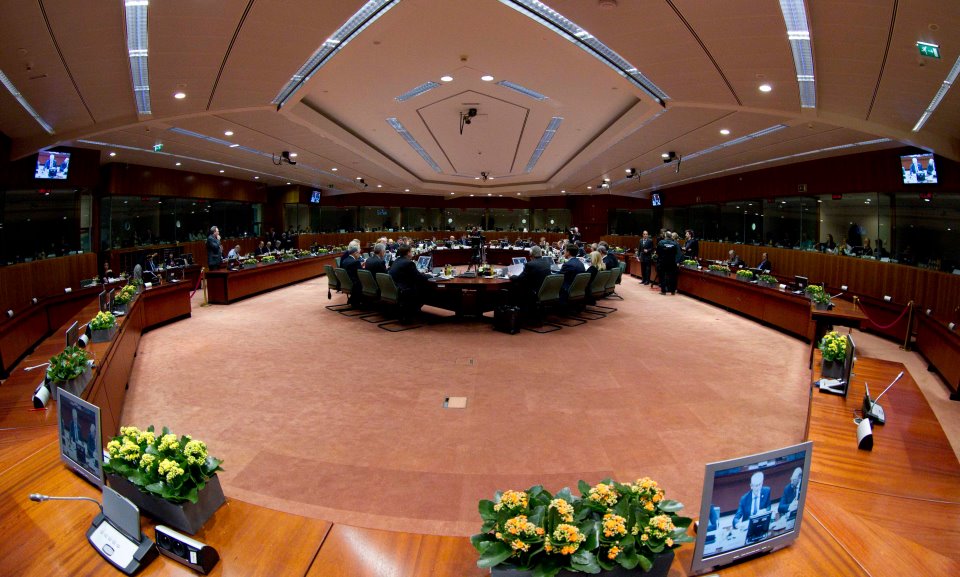What happens behind the scenes at a European summit?
(B2) Every three months, at least, the 28 meet in Brussels at the summit. How is the meeting going? We were able to enter the backstage. Story.
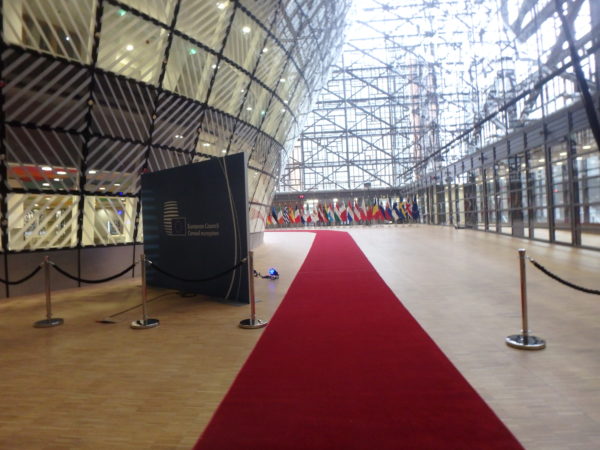
There are only a few minutes left before the leaders arrive. Behind the scenes, men and women of protocol, security, ushers, cooks, diplomats are busy. Objective: to have everything ready to receive the 28 leaders, whether they are prime ministers or presidents of the republic. The organization of a European summit indeed follows a mechanism prepared to the millimeter. But you also have to be able to deal with unforeseen or imponderable events: a surprise guest to be transported urgently, a boss who slams the door, a meeting that lasts all night, bilateral meetings to organize, etc. In short… everything must go without a hitch.
No unnecessary luxury here. In this building, inaugurated very recently, in December 2016, there is little gilding or great luxury. Just a sought-after assembly of glass and wood, shimmering colors. Everything is done to facilitate the movement of those responsible, from entry to exit, including the rooms.
A 'fireside' side without a fireplace
In the fairly well-oiled European system, the meeting of leaders retains a slight anachronistic side. Despite all the technological innovations, everyone seeks at all costs to preserve the original spirit: the “ fireside chat » dear to Valery Giscard d'Estaing. In the room reserved for them, on the 7th floor of the newly inaugurated Europa building, the Chefs will be alone, or almost. There is no chair provided next to them.
Alone at the table
There is no question, as for a ministerial meeting, of having collaborators at their side, who enter or leave causing a real whirlwind. “ It totally changes the mood. It's more austere “says a regular at these meetings. No question either of being replaced by a minister. Anyway, " there is only one chair and one (safety) pin per delegation » recalls our interlocutor. If the Leader cannot be there, the chair remains empty unless another leader is authorized to speak on his behalf (1). “ It's like a club. Only club members can speak. »
A few discreet happy few
Only a few senior civil servants are authorized to enter the holy of holies, such as the Council's jurisconsult, called to the rescue when a legal problem arises, the secretaries general or chiefs of staff (2), and the note takers (note takers in common jargon). But they are well placed behind the chefs, and only have access to the table if they are expressly asked.
In English… or in all languages
Behind the windows, take place translators who will officiate, if necessary. The crème de la crème of translators, selected and well trained. " They don't just do that. » But they are often the same. They are specially prepared for the meeting, benefiting from the language principals. There is no question of making approximations here. English is, however, commonly used by several Chefs who prefer to express themselves without an intermediary. But " often, especially when the question is sensitive or technical, a Chef will prefer to express himself in his original language », confides a European diplomat to us. If the colors can be shimmering on the ground, and politeness is essential, the conversations are sometimes no less harsh in fact. We remember the blow that Nicolas Sarkozy had on José-Manuel Barroso regarding the Roma. A blower which echoed throughout the corridors, even if those concerned subsequently denied it.
A photographic interlude
Simple concession to this collective solitude, the moment of going around the table. A few hand-picked photographers and cameramen are authorized at the start of the meeting to film the arrival of the leaders, their smiles or their tensions. Not too long and microphones off. After a few minutes, the doors close. The exchanges can begin. The President of the European Council, Donald Tusk, former Polish Prime Minister, opens the debate, giving the floor first to whoever has a proposal to make: it could be the President of the Commission or the High Representative of the Union, Federica Mogherini or one of the 28 leaders.
Quite free debates
Then whoever wants to intervene. There is no precise rule. “ Some prefer to speak at the beginning, others prefer to wait until the end of the debate. It's all about tactics and personal feeling » explains a diplomat. Whoever wants to speak puts his easel upright or makes a sign. The secretary general of the council keeps the register (a small sheet) of those who want to speak and hands it to the President of the European Council. A discussion can be short, boiled down to one or two people speaking. And it lasts a few minutes. Sometimes it can be longer. On political issues, everyone wants to be able to express themselves, even if it sometimes means repeating someone else's position. A simple round table of 28 can already take two hours. And if the question is very political, the discussion will continue... These speeches - just as much as the silences or non-speaking - are important.
A consensus decision
All decisions are made by consensus. A procedure defined by an old rider of the summits like this: “ If no one speaks, everyone agrees ". If there is no agreement… the conversation continues, or we decide to postpone it. Sometimes we proceed more subtly, by entrusting the European Commission, the High Representative or another wise European with the task of studying or exploring solutions. This saves time and perfects consensus. “ The goal is to have everyone on board, not to marginalize anyone. »
Very helpful note takers
The summit would not be a summit without a very discreet cog: the Antici, thus named by the Italian diplomat who had inaugurated the function (under the Italian presidency of 1975!). These high-level diplomats, one per Member State, are placed in a small, very discreet room, not far from the Chiefs. They are regularly informed by one of the three note takers, who take turns in the main room, and go to the antici room. Oral information only.
A sort of European-style Arabic telephone
The diplomats, equipped with their laptops (3), then pass this information on to the delegations, where the president's chief of staff, his advisors and a few diplomats wait pell-mell, in a more or less relaxed atmosphere. A sort of European-style Arabic telephone which has a big advantage: to preserve the discussion as much as possible. as open and frank as possible ". Social networks have, of course, changed the situation. Equipped with their cell phones, the leaders allow themselves a tweet from time to time, which delights journalists and diplomats (or their ire Sometimes). But the secrecy of the discussions remains, overall, preserved…
(Nicolas Gros-Verheyde)
- It's quite rare. Recently, the Dutchman Mark Rutte was prevented, so his Belgian colleague took over.
- The General Secretariat of the Council (Jeppe Tranholm-Mikkelsen), of the Commission (Martin Selmayr), of the EEAS (Helga Schmid) and the Head of Cabinet of the President of the European Council.
- However, in a corner of the room, we kept the good old faxes which were not stored. “ It may come in handy one day “, explains a man of the Council.
Paper published in Sud Ouest today, completed and detailed
